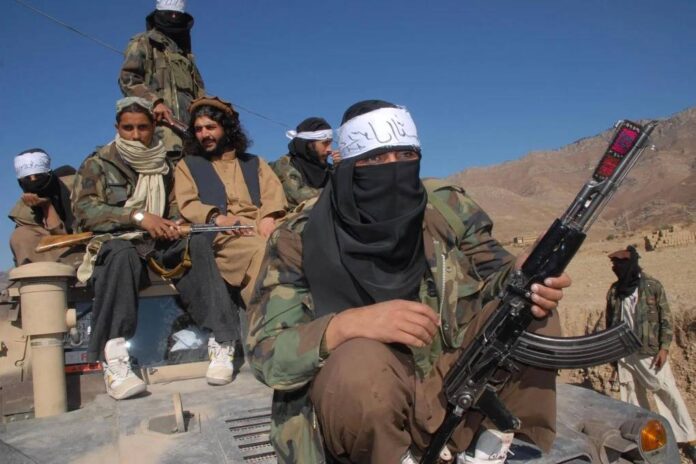The day in Waziristan belongs to civil-military security forces and the night to terrorists. Residents live in perpetual fear and are confined to homes after sunset. So is the police, which lowers shutters on the police stations with the sunset and emerges only when the daylight breaks out. Not sure what the Army does and why don’t they act against the TTP and others who have been out on a target-killing spree? In the last three months alone, terrorists have taken out over two dozen officials – mostly police and intelligence – as well as Malik Jameel, chief of Tojikhel, the largest tribe in South Waziristan. Our impression is that the security forced are more preoccupied with fixing the PTI than taking on the TTP.
Should this account by a young unemployed man from South Waziristan ring alarm? It is a compelling story by a person who holds a Masters’ degree from Peshawar University but forced to idle around in Wana, the administrative capital of South Waziristan.
My meeting with the boy came a couple of days after the All Parties Conference (APC) that Khyber Pakhtunkhwa Governor Faisal Karim Kundi convened to discuss the security and militancy challenges, particularly in the districts that abut Afghanistan. The bloody sectarian violence in Kurram that claimed over 100 lives last month had provided the immediate trigger for the APC but the so-called newly-merged districts (NMDs) have been simmering with violence and target-killings through the year.
Two major issues emerged during the discussions. Why have calls for hand over- of security matters entirely to civilian law-enforcement agencies gone unheard? Multiple jirgas, including protests by the police in Bannu, Lakki Marwat, Waziristan, D.I.Khan and stakeholders’ meeting in Peshawar demanded that the police be left alone to deal with the issue or the army entirely take over the responsibility.
The context for this demand is the TTP threat to all police in the province and the target-killing of several officials. Why are the threats directed at the police alone, by the way?
Another issue that Mohsin Dawar, an MP from North Waziristan, raised inter alia related to the “return” of the TTP fighters in 2022.
In a cunningly self-serving way PML-N and PPP leaders – including Khawaja Asif – have often dumped the blame on former prime minister Imran Khan for facilitating several hundred TTP militants’ return from Afghanistan for settlement in mountainous areas of Swat – as if PTI was responsible for the surge in violence.
Let’s track the course of events on this particular issue to set the record straight. And this is based on interviews with key stakeholders privy to the matter.
# In October 2021 negotiations with the Hafiz Gul Bahadur group began as a prelude to behind-the-scenes talks with the TTP.
# On November 9, 2021, the TTP announced a unilateral one-month ceasefire and demanded the release of 200 of its militants.
# On November 29, the TTP extended a ceasefire by 10 days, but on December 10, 2021, called it off, claiming Pakistan had not fulfilled the conditions. The TTP also announced an increase in attacks. Similarly, the Hafiz Gul Bahadur group also intensified its attacks.
# During the roughly six-week negotiations no TTP militant with a proven record of heinous crimes was released. No compensation was paid either, except the release of a few dozen alleged TTP-linked militants facing minor charges.
# When Imran Khan mentioned the negotiations in an interview with a Turkish media outlet, he had referred to talks with the Hafiz Gul Bahadur group, not the TTP.
# The PM was only “informed” about the proposed actions on TTP, only after General Faiz Hameed as ISI chief had prepared a summary of the plan, gotten it approved by President Arif Alvi. PM Khan had little option in publicly disowning the ISI-led process with the TTP.
# Imran Khan’s government ended on April 9, 2022.
# On April 28, the TTP unilaterally announced a ceasefire for an indefinite period after Pakistani planes allegedly bombed TTP and Hafiz Gul Bahadur group locations.
# On June 22, 2022, federal minister Rana Sanaullah told media that a high-level national security meeting, attended by Prime Minister Shehbaz Sharif, and military leadership, decided that negotiations with the TTP would be conducted within the constitutional framework.
# On 7th July 2022, Rana Sanaullah revealed that the Parliamentary Committee on National Security had unanimously supported negotiations with the Tehreek-e-Taliban Pakistan (TTP).
It is worth considering that during the PDM’s tenure, several Pakistani official delegations visited Afghanistan to negotiate with the TTP. It was also during this period that the decision to repatriate TTP militants was made, and they returned to Pakistan – under the summary that General Faiz had gotten signed by President Alvi.
It was indeed Murad Saeed and a few other PTI leaders who led the public protest against TTP “settlers” in Swat and Shangla and eventually forced them to leave the region.
During this time, Barrister Saif, spokesperson for the PTI government in KP Khyber Pakhtunkhwa, also briefed the media on negotiations as Rana Sanaullah had done it in July.
Also, we MUST not forget; in matters like terrorism civilian governments hardly matter. Nor do they have any leverage. In this case too, talks with the TTP were overseen and conducted by then Core Commander Peshawar, General Faiz Hamid – which would not be possible without consent from the army chief Bajwa. Hameed was posted to Bahawalpur as corps commander around mid August.
This timeline exposes the glaringly dishonest narratives on the return of TTP that PML-N ministers have peddled.
It is sad indeed that selfish and dishonest civil-military stakeholders use issues such as terrorism for political point-scoring. The account by the young Waziristani above is a sad reflection of this propensity. Things would be different had we deployed an honest and whole-of-government consensual approach to terrorism and extremism




